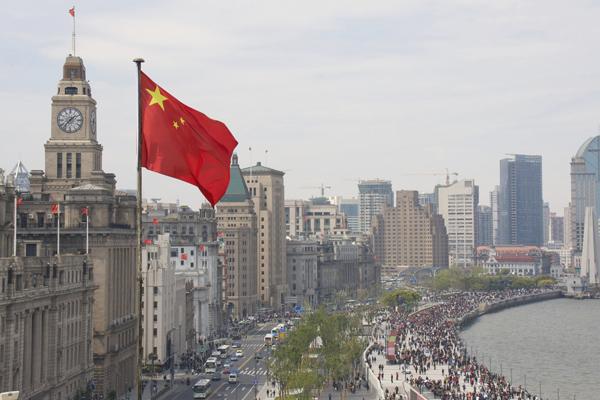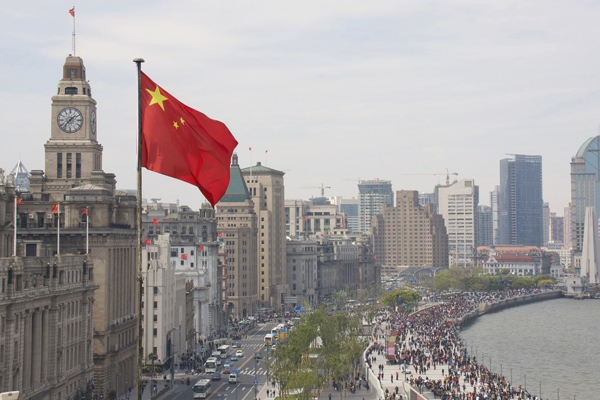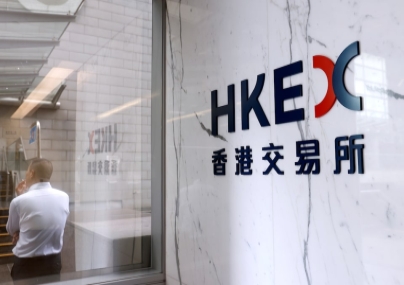
Shanghai has always been a pioneer in financial reforms. Standing at the forefront of both the capital and legal markets, Shanghai plans to inaugurate the much-anticipated strategic emerging enterprises board. How will it fare, and what impact do lawyers expect it to have? Shangjing Li finds out more.
It is not a surprise that lawyers in Shanghai enjoy the highest revenue per capita across the country – more than the capital city of Beijing, and almost twice as much as lawyers in the southern city of Shenzhen.
The government has spent years trying to build Shanghai into an international financial centre. Stroll along the Shanghai Bund or across the central street of Nanjing Road and you might think you’re in a European city, given the many Westerners you’re likely to see walking by.
Shanghai is perhaps the only city in China that so resembles a typical Western metropolis that its underlying culture and influence lies in its capital market and legal market as well.
“A lot of lawyers would come to Shanghai to practice law, because Shanghai has the best legal environment in the country, in terms of transparent competition, litigations, and capability and fairness of courts,” said Lawrence Zhu, the managing partner at Allbright Law Offices.
Data released by Shanghai Bar Association this April revealed that the number of law firms in Shanghai went up from 1,064 in 2010 to 1,321 this year, marking a 24 percent increase. Meanwhile, the number of Shanghai-based lawyers rose from 12,298 to 16,900 during the same period, indicating a 37 percent growth.
In an interview with ALB, Zhu from Allbright emphasised that a fairer and more standard market in Shanghai contributed to current prosperity of its legal market.
“In Beijing, you have to be well-connected with the big SOEs [state-owned enterprises] to win big deals. But such deals have a limited number. The deals in Shanghai, on the other hand, are more diversified and win big in quantity,” he said. “For example, in Beijing you can take one deal in a year that is worth 20 billion yuan. In Shanghai, our deal may be worth only 1 billion, but we can take many such deals.”
Back to topA MULTI-LEVEL CAPITAL MARKET
China has been working to build a multi-level capital market to cater to companies’ different financial needs. And to better fulfill Shanghai’s role as the country’s financial hub, the Shanghai Stock Exchange is scheduled next April to inaugurate a new market called the Strategic Emerging Enterprises Board. The city has already obtained approval from the State Council for the board, which is expected to challenge the wildly successful ChiNext board in Shenzhen.
Chinese President Xi Jinping pledged to let state control take a step back and allow market forces play a more decisive role.
The Shanghai exchange, which mainly hosts large state-run firms, has been planning the new board for several years to win back investors who fled the market during its multi-year slump. The board is designed to hold innovation-driven companies in industries including computer science, information technology, renewable energy and bioscience.
To attract companies to list on the new board, the Shanghai exchange is considering more relaxed criteria, such as waiving certain requirements on revenue, according to people familiar with the matter.
Four companies are being considered the first to be listed, including internet firms Antgroup, Dianping and Iqiyi, as well as the Commercial Aircraft Corp of China.
“Though the Strategic Emerging Industries Board has not been approved yet, we have already started the preparations. Quite a few of my clients have asked to be among the first companies listed on the board, and the demands are especially from the e-commerce companies with big revenue but low profit margins. ” said Shao Chunyang, a partner at JunHe.
The new board will also provide an exit channel for private equity and venture capital investors, Shanghai Stock Exchange vice-general manager Liu Shi’an was quoted saying at a forum organised by the Shanghai Securities News.
“The strategy of the emerging industries board is to attract emerging and creative businesses, especially those that have crossed the start-up stage, that have grown to a certain size and have a clear strategy,” he said.
Shenzhen’s ChiNext growth board has historically outperformed the Shanghai Composite Index and was particularly strong during the stock boom early this year. And as Beijing seeks to experiment with reforms and liberalise a rigid financial sector, the rivalry between Shenzen and Shanghai has intensified.
In 2010, the southern city carved out a 15-square-kilometer region called Qianhai, which has served as a testing ground for freer currency movement. In response, Shanghai launched a free-trade zone in 2013 to pioneer financial reforms.
In November 2014, the Shanghai bourse received a major boost when the Shanghai-Hong Kong Connect link kicked off. But Shenzhen is quickly catching up, as it plans to launch a similar Shenzhen-Hong Kong link later this year.
Shanghai’s new board seems dead-set on winning back investors, as it targets U.S.-listed Chinese companies that are seeking to go private and relist in the domestic market. This comes as a huge number of Chinese companies are undergoing privatisation this year.
Back to topA DAUNTING FTZ
Shanghai seems to be leading the way for financial reforms, but not every experiment it does turns out to be an immediate success.
When Shanghai officially announced its Free Trade Zones plan, it showcased impressive ambitions. Now two years have passed, but progress has been slow on many of the projects.
The Free Trade Zone, which is part of wider financial reforms such as transitioning to a fully convertible yuan currency, is seen as an important step towards developing a more open economy, one that is regulated by policies similar to those in developed markets.
However, the disappointing performance of Shanghai’s much-hyped FTZ – seen as a pet project of Premier Li Keqiang and billed as a reform laboratory – raises questions about China’s commitment to opening up its markets as it wrestles with a slowing economy.
The 29 square kilometre zone on the outskirts of China’s commercial capital, which was hailed as Beijing’s boldest reform in decades, was meant to test changes such as currency liberalisation, market-determined interest rates and free trade.
“So far, the Free Trade Zone barks more than it could bite. Though it introduced ‘negative list’, overall, it fell short of expections in terms of attracting foreign capital, ” said Jia Ping, the Chief Executive Director and founder of the Health Governance Initiative.
An annual survey released early this year involving more than 370 members of the American Chamber of Commerce in Shanghai found that almost three-quarters of respondents believed the Shanghai Pilot Free Trade Zone had no tangible benefit for their business. Around half said they hadn’t noticed any change for their business since the zone opened in September 2013.
The response from law firms fell short of expectations as well. Last year, the ministry approved a scheme proposed by the Shanghai Judicial Bureau that permitted increased cooperation between foreign and domestic law firms in the FTZ.
The scheme proposed two measures for increased collaboration: secondments of lawyers between firms, and formal alliances or setting up joint operation in the Shanghai FTZ.
So far only Baker & McKenzie has entered into a ”Joint Operation” under the Shanghai FTZ’s new rules, as it teamed up with Beijing’s FenXun Partners last April.
More than half of the respondents in the annual survey also said they believed China’s regulatory environment favoured Chinese companies. “This high response rate has held steady for the past three years, indicating a persistent issue with little improvement,” according to the report.
Some 63 percent of the companies surveyed said laws and regulations that favor local companies hindered their business, up from 58 percent in 2013.
Around half of the respondents said that China’s anti-monopoly and anti-corruption investigations were more likely to target foreign multinational companies.
“The FTZ should adopt a more open and liberalised approach in the realms of finance, tax-reduction, and innovation fund, small to medium enterprise facilitation, IP protection and internet,” said Jia. “We could consider channeling our zone to Trans-Pacific Partnerships, and learn from that agreement.”
Despite all the ups and downs, Shanghai has given itself the goal of becoming a global financial center on par with Hong Kong and New York by 2020. As the city with the “best legal environment” in China, it definitely faces great expectations.
Back to top


